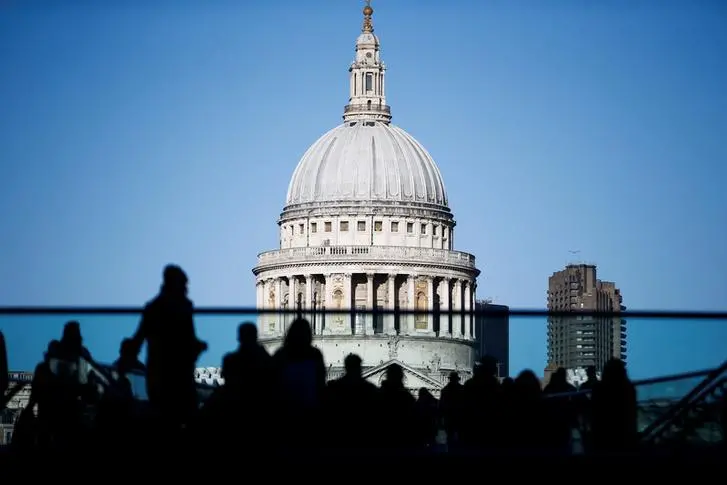PHOTO
(The author is a Reuters Breakingviews columnist. The opinions expressed are her own.)
LONDON - In Samuel Taylor Coleridge’s “The Rime of the Ancient Mariner” the protagonist inexplicably shoots an albatross that had hitherto acted as his ship’s lucky charm. In 2021 a similar fate is set to befall one of the United Kingdom’s golden geese: duty-free perks for foreign tourists. The government’s decision to upend a benefit that might have provided a handy post-pandemic boost could become a symbol of its messy break from the European Union.
Bicester Village is hardly one of Britain’s more familiar tourist hotspots. But thanks to the outlet’s cut-price Gucci bags and handy duty-free refunds, Chinese tourists in 2019 visited the small Oxfordshire town as frequently as Buckingham Palace. Which makes it all the stranger that the UK government decided in September to scrap tax rebates that fuel the phenomenon.
Britain’s apparent rationale was to penalise European tourists, thus helping pressure the EU into a more favourable trade deal. UK bean-counters reasoned that more than 90% of visitors to the UK don’t use the duty-free scheme, so few would miss it. And the UK’s Office for Budget Responsibility reckoned it could raise around 500 million pounds in new tax revenue.
Yet almost two-thirds of non-EU tourists would be less likely to visit the UK without the rebate, a Global Blue survey shows. Travellers can still buy goods tax-free in the UK, but they will have to pay for them to be mailed back to their home countries, and insurance costs for luxury items like watches are high. The upshot, according to the Centre for Economics and Business Research, is that those tourists that do come could spend up to 6 billion pounds less.
It will be hard to recoup these lost tax receipts. China has been trying to encourage duty-free shopping at home, hence initiatives like the joint venture between Alibaba and Dufry. France, home to Hermès International and LVMH’s Louis Vuitton, is slashing the minimum value of goods on which VAT can be claimed.
Covid-19 has already hit retailers and airports reliant on tourism spending. The tax-rebates ban twists the knife. Some airports could lose 40% of their revenue, York Aviation research estimates. UK trade body Walpole says luxury retailers like Burberry BRBY.L and Mulberry will be hardest hit, as tax-free shopping accounts for as much as 60% of their sales. All in all, it’s a tale of avoidable economic self-harm – not unlike Brexit in general.
CONTEXT NEWS
- Sadiq Khan, the mayor of London, wrote a column in the Evening Standard on Dec. 4 saying the government should drop the proposal of a ban of duty-free shopping in the United Kingdom.
- London’s Heathrow airport is preparing to launch a legal challenge to the Treasury’s move to end value-added tax rebates for tourists, Sky News reported on Nov. 2.
- Zurich-listed duty-free retailer Dufry and Global Blue, the $2 billion tax-free refund operator, are also said to be participating in the legal action.
- From Jan. 1, 2021, VAT refunds for overseas visitors in British shops will be removed. However, tourists will still be able to buy items VAT-free in store and have them sent direct to their overseas addresses.
- The government added that the “costly system” of claiming VAT refunds on items they take home in their luggage would be ended.
- In July investor Dan Loeb ditched a merger of his Far Point special purpose acquisition company with Global Blue.
(The author is a Reuters Breakingviews columnist. The opinions expressed are her own.)
(Editing by George Hay and Oliver Taslic. Graphic by Vincent Flasseur.) ((karen.kwok@thomsonreuters.com; Reuters Messaging: karen.kwok.thomsonreuters.com@reuters.net))





















